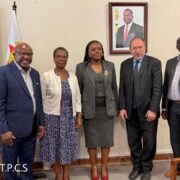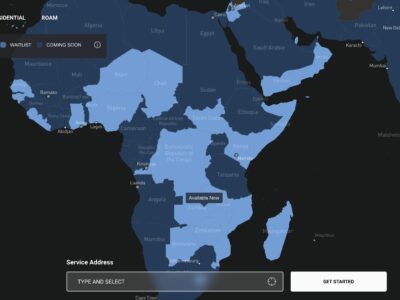Speaking at the Telecommunications and Disability Conference, the Minister of ICT, Postal and Courier Services, Honourable Tatenda Annastacia Mavetera, called on telecommunications operators to prioritise accessibility standards to ensure digital inclusion for persons with disabilities.
During the event attended by the CEO of Dark Fibre Africa, Mr S. Chimutsotso, the CEO of Dandemutande, Mr. N. Ncube and Netone Cellular Private Limited CEO, Eng. R. Mushanawani, Minister Mavetera emphasised that access to information and communication technology (ICT) is a fundamental human right, yet millions of Zimbabweans with disabilities face barriers in the digital world.
By Gamuchirai Mapako
“All telecommunications operators must ensure that mobile networks, websites, and digital services comply with accessibility standards (Web Content Accessibility Guidelines),” she stated.
“I am deeply committed to ensuring that Zimbabwe’s telecommunications sector is inclusive and accessible to all. Our vision is a society where everyone, regardless of their abilities, can participate fully in the digital economy and enjoy the benefits of technological advancements.”
Minister Mavetera urged telecom operators and private sector players to take an active role in promoting digital accessibility. She acknowledged the presence of industry leaders and called on them to integrate accessibility into their core operations.
“…we are committed to fostering an inclusive society where technology serves as an enabler, not a barrier,” said the minister.
The World Disability Report estimates that 15% of the global population lives with some form of disability. In Zimbabwe, this translates to over 2 million citizens at risk of exclusion from digital opportunities if immediate action is not taken.
The minister announced that Zimbabwe’s National Disability Policy and National ICT Policy would be reviewed to incorporate clear accessibility guidelines, ensuring that all new technologies and services are designed with inclusivity in mind while aligning with the United Nations Convention on the Rights of Persons with Disabilities (CRPD), particularly Article 9, which emphasises accessibility.
One of the steps includes mandating that every Community Information Centre (Digital Centre) be equipped with at least one machine featuring braille software and other assistive technologies. This initiative aims to provide persons with disabilities equal access to digital resources and services.
The Minister also stressed the importance of co-creation, urging innovators to work directly with persons with disabilities to develop solutions that meet their needs.
Affordability and availability of assistive technologies remain significant challenges. To address this, the Minister announced that the Universal Services Fund, managed by the Postal and Telecommunications Regulatory Authority of Zimbabwe (POTRAZ), would subsidise assistive devices such as screen readers, hearing-aid-compatible smartphones, and braille interfaces.
“We are committed to promoting the development and adoption of assistive technologies, making them more affordable and readily available,” she said.














Comments